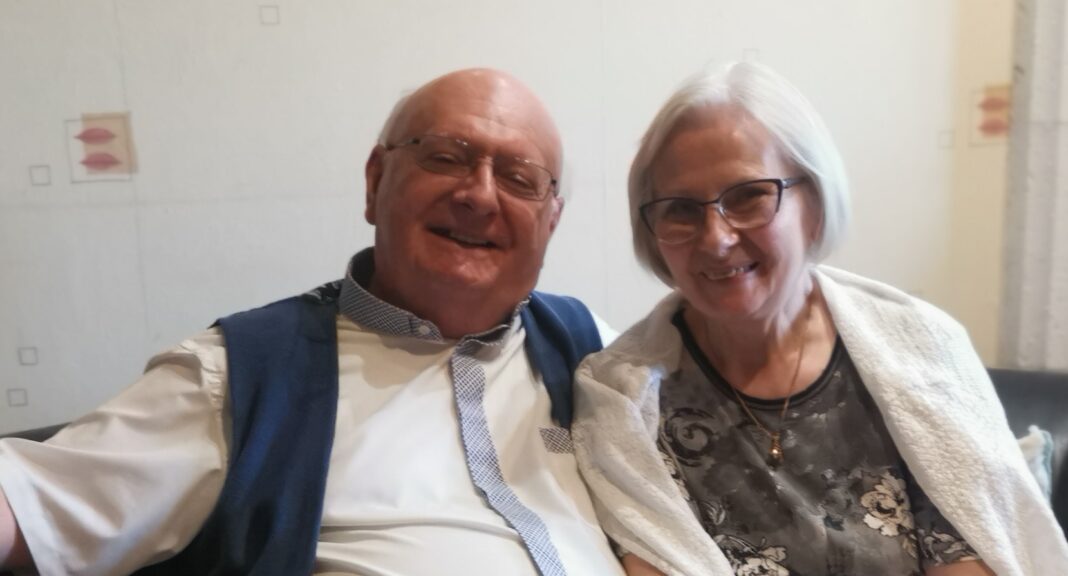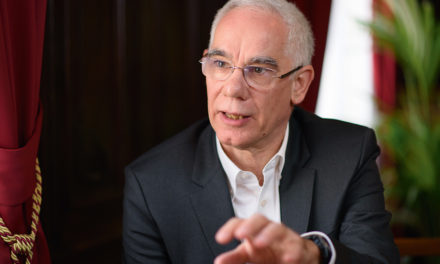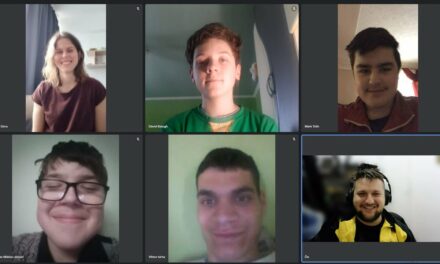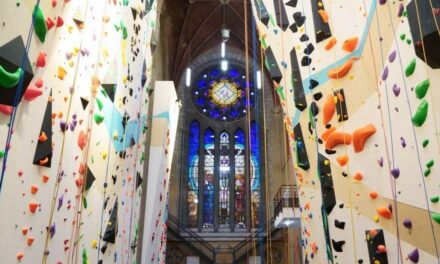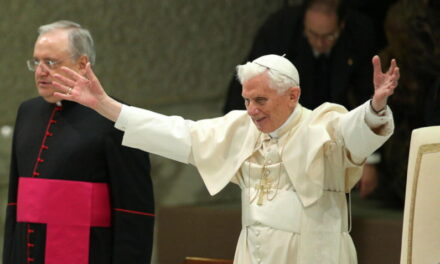My path was preordained, marked out, says Dr. Lajos Békefy is a reformed pastor whose ecumenical ministry started in Budaörs. Interview by Erzsébet Eller.
"You were and remain my true joy, when I didn't even know I was thanking you. You, Lord, gave us souls, parents and children, grandchildren and siblings, companionship and hugs, friends and teachers at home and in foreign lands, soulmates, countless prayers for us, and supplications from them to You for me. I have traveled many roads, by sea from here and beyond, and you have shown me: There is only one home, beyond country and land, and that you are waiting to return home, to your eternal country, I thank you again and again"
- with these words Dr. thanked for the recognition. Lajos Békefy Ph.D. on August 18, 2023, upon receiving the Knight's Cross state award. His colleague for several decades, dr. And Antal Birkás, Ph.D., president of the KDNP Protestant Workshop (of which Békefy was the foreign affairs secretary for 25 years), wrote:
"(...) how many joint lectures, conferences, jointly edited books, work written together, foreign trips, lectures, building political relations. Big roads, fast pace - tireless creativity. I got to know this from Lajos. This award is in the right place! Acknowledgment of a beautiful track...".
Every time there is a public holiday, I usually browse to see if there are people from Budaörs among the recipients, which is how I came across the above lines. I did not know Lajos Békefy (reformed pastor, social activist, public writer, translator, researcher, publicist, foreign affairs secretary of the Protestant Workshop, editor-in-chief of the relaunching of Presbiter Lap), but for some time now he has honored the Budaörsi Napló by sending from time to time the various , mainly his writings published in theological publications, mainly biblical essays.
I then learned about him that although he was born in Csorná in 1948 and then lived in Győr, he moved to Budaörs with his first wife in 1971 when he was still very young. He has been living here ever since, and for more than thirty years now with his second wife, Klaudia Röhrig, who is the mother of their two adult daughters and grandchildren. Both are Reformed pastors, with a common worldview, similar values, and even mutual acquaintances, and yet they found each other only after several detours.
Their fates are similar, since in addition to recognition, both of them had their share of rejection and incomprehensible "punishments". But above all, Lajos Békefy - pointing upwards and adding: with God's help - always tried to get the pointer forward for themselves and their ministry. Thanking God for the guidance and, of course, the lessons learned.
However, let them tell you about it themselves! In order to write this article, they invited me to their Domb utca home, a small panel apartment, where the relics, including the most recent and older awards and diplomas, are kept in the cupboard, for example the highly regarded "Commemorative Plaque for Penal Execution Service dr. To Lajos Békefy, a public servant, chaplain of the Pálhalma National Penitentiary Institute" from 2010. And the books written by him on the shelves (including 15 of his own and about twenty translations) bear witness to a rich life. And speaking of listing: let's also add the more than 4,200 articles published so far, although we can already search for them in the online archives.
When we agreed on this date for the conversation, he wrote that he is now at home for two weeks, but after that he will leave again, this time to Rome, the Vatican, where another research work will follow. Can you tell me about it? - I tried to focus on the interview after getting to know each other. However, the answer surprised me a lot, since the topic is the Armenian genocide committed by the Turks from the summer of 1915 to the turn of 1917-'18, which Lajos Békefy began to explore in Hungarian more than five years ago.
No, he does not have Armenian ancestry, but since very little can be known about this sad event, since not everyone even among the Armenians themselves faces it, why were they dragged from the villages and cities and killed, according to his knowledge, 1.3 million people, Lajos Békefy he doesn't let it rest. And in the Vatican archives, he expects rich records from reports and background materials related to the exchange of letters between the pope and the Turkish court. The goal is to turn this into another book.
However, let us return to the life of Lajos Békefy, or rather to its beginning!
"I was born in Csorna, with Swiss-Austrian ancestry on my mother's side, so much so that my grandmother had to learn to speak Hungarian. But in his evening prayers, he also dripped into my soul the good taste of the German word becoming personal. And even today, after many thousands of pages of text translations, this word still has the taste of my grandmother. And on the paternal side, stone-hard Kuns have been in my soul for centuries, church-loving Kun ancestors, ready to protest constantly: we are Hungarian Calvinists! According to the collective dream of our Kun species, my father always wanted to build a white-walled church, first on the fertile, black soil wasteland of Karcag and then in the southern region.
- he wrote five years ago on his seventieth birthday, upon request.
He then continued:
"That was as much as I could do. I was able to build three churches. A little church pig with the people of Pesterzsébet-Szabótelep. (...) And two prison chapels in the prison giant in Pálhalma, where I was assigned for almost ten years(...)".
In response to my questions about why he eventually became a pastor and not, say, a lawyer, doctor or psychologist, which his parents intended him to be, he recalls:
"In 1964, I got to Sweden through my father's friends. Amazed at the new world, one Sunday the friendly family took me to a Catholic church in Malmö. It was like a floating heavenly ark with its white walls and the mast of a ship hanging from above in the church square. I don't know how, only why: I fell to my knees, space and time disappeared, I experienced some fantastic inner glow, the church servant had to tap me on the shoulder saying that the mass was over and I should go on. After that, I was already studying Reformed theology in Budapest, in the 1960s and 1970s, when my sweet mother told me that she lost so much blood during childbirth that she fell into a coma for days. When he regained consciousness, the doctor asked him why he repeatedly hit his own shoulder. Because when he was hovering on the border of consciousness and unconsciousness, he saw a beautiful light and in his vision someone put a hand on his shoulder and told him that 'a son has been born, raise him!' And I think that I've been looking for this voice ever since, and it's called the Word of God." That is, he adds:
"My path was predestined, marked out."
About the beginnings: "In Győr, I read Hungarian and world literature to my heart's content, Dostoyevsky and Jókai became my 'love', and Goethe, Kant and others. I had excellent teachers who, even in 1956, devoted themselves hard to the side of freedom and justice. My class teacher Vilmos Magyar encouraged me to respect and nurture my sweet mother tongue. Then the Benedictines, among whom the multilingualism of József Danczi Villebald, a scholar of Slavic studies, gave him a lifelong incentive to learn languages. And 1956, with the elementary experience of freedom, when I experienced the thrill of liberation and the sounds of terror in front of the prison gates. It was there that I first heard the crackle of machine gun fire from the tops of dark green Csepel trucks.
That's when the dramatic sentence hit me almost like an explosion: Hungarians kill Hungarians! This serious sentence, conceived in childhood, still lives in me as a tormenting realization. Since then, he has returned in many different transcripts and deposits, up to today!".
So he moved to Budaörs from Győr 52 years ago, and "this is where my classical career began, ecumenical service, international service (from New York, to the smallest village in Transylvania in the Scandinavian era), from here I went abroad as a scholarship holder, first to Wittenberg, and then I became the Ecumenical Officer of the Hungarian Churches He is the editor of his council's newspaper. At the same time, I was a pastor in Pesterzsébet. And later, in a small, twenty-page publication, I wrote about the unforgettable 14 days I spent among the GDR refugees at the spiritual training camp in Csillebérce in 1989. On the last day, around six in the afternoon, someone said that it is not possible to go out to the new country as a pagan, and then I announced the baptism in the evening. The crying, laughing, fear and joy of the people there before the release at midnight was amazing."
The entire conversation can be read in the Budaörsi Diary!
Featured image: Erzsébet Eller / Budaörsi Napló

